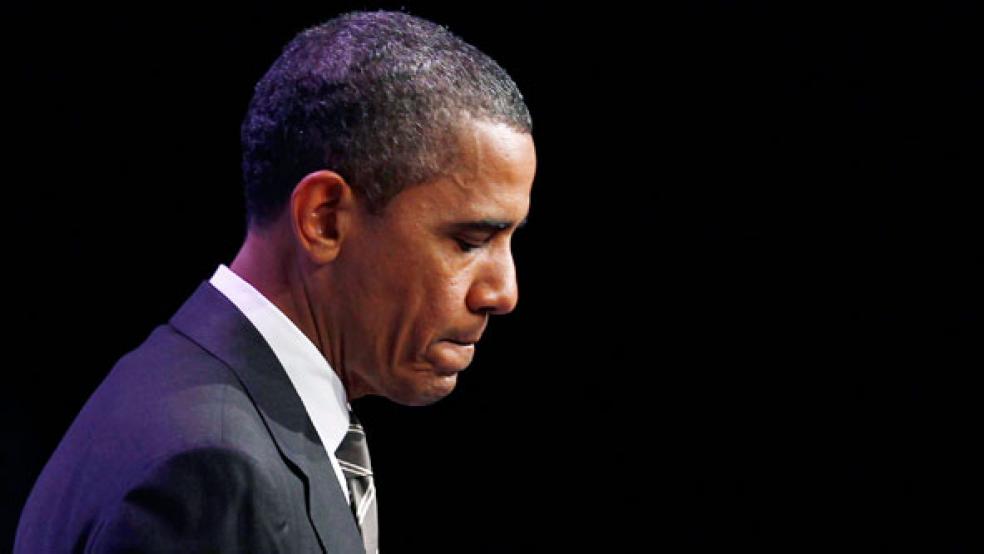The latest trio of controversies—IRS, Benghazi, and the Justice Department investigating journalists—has damaged President Obama’s standing, according to a pair of new surveys released Wednesday.

Republicans are already inclined to assume the worst about the White House. But independent voters are also losing faith. These swing voters—representing about a third of the electorate—can often force ideologues into accepting compromises.
Independents helped carry Obama to the presidency in 2008, but they generally supported Republican Mitt Romney in 2012. Their disenchantment with Obama appears to be growing.
The president notched a 28 percent approval rating from independents, a steep drop from the 41 percent recorded in January, according to a new NBC/Wall Street Journal survey.
Obama’s total approval rating of 48 percent matched its April level. However, the poll shows the growing impact of the slew of government controversies, which at the outset had not registered much with the public.
A solid majority of voters—more than 55 percent—say the IRS, Benghazi, and Justice Department revelations raise some doubts about “the overall honesty and integrity of the Obama administration.” Just 27 percent of independents described Obama as “honest and straightforward,” compared to 45 percent in January.
This helps to explain the results of a Quinnipiac University survey last week showing that 76 percent of the country wants an “independent prosecutor” to dig into the IRS for targeting Tea Party groups for review.
In a separate poll released Wednesday by Bloomberg News, 53 percent of independents do not believe that Obama—as claimed by the White House—learned about the IRS scandal from news reports.
And despite the drop in the unemployment rate and bullish stock market, the share of Americans saying the country is on the wrong track has increased to 60 percent from 54 percent in February.
The NBC/Wall Street Journal poll suggests there is a broader multi-decade trend occurring in how the public thinks about the government, rather than sentiment being driven solely by the latest set of controversies getting attention from Republican congressional committees.
A mere 31 percent were confident in the U.S. system of government, with millennials being just as pessimistic as senior citizens, a discouraging sign since the confidence numbers usually decline as a generation ages.
In August, 1974—when Richard Nixon resigned because of Watergate and the Vietnam War was ending in controversy—55 percent of Americans expressed confidence in the government, according to the Roper Organization.




